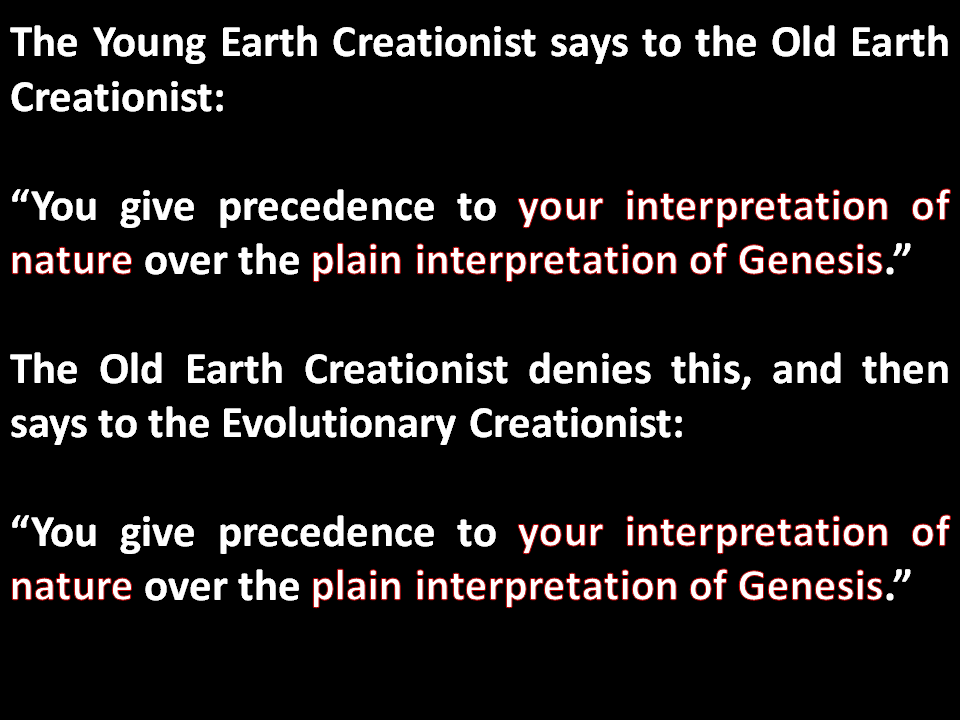Continuing the discussion from Demon Possession in 2016:
I’m with Eddie is finding this tendency in progressive Christian circles disturbing. (This is not directed at any individuals who have expressed opinions on this forum, it is a more general response to a whole contingent of vocal post-Evangelicals who tend to be very much in favor of BioLogos, but also promote a certain kind of hyper-rational approach to Scripture and the practice of the Christian faith.)
If the good news we are supposed to stand for as Christians gets reduced to science + logic + feminism + marxist deconstruction of societal power structures + environmentalism + a side of “God/hope/love/social justice,” it’s a bankrupt gospel and bears little resemblance to the apostolic, global, Christian faith.
As educated 21st century digital age people, we should not make the mistake of thinking that we have somehow arrived at the definitive “real” and “true” worldview from which we stand in judgment and evaluation over all other “lesser worldviews.” That is cultural hegemony and the epitome of arrogance. Our vision is limited and constrained, and our understanding is certainly incapacitated in some areas, just like people from any other culture and time. Our attempts to make God’s revelation and action in the world “fit” our cultural categories (of logic, and science, and the primacy of the individual) aren’t really that different from similar attempts to make it all “fit” made by modern day tribal people, or ancient Israelites, or first century Hellenist Greeks.
Our experience with abuse in the name of Christianity (whether it be corrupt health and wealth televangelists, or Fundamentalist cults, or the justification of discrimination and ignorance propped up by misguided interpretations of Scripture) has really hampered some people’s abilities to look at evidence in an unbiased way. It reminds me of some women I know who have been so poorly treated by key men in their lives, that everything now plays into their narrative of “men are the enemy and are trying to hurt me.” They have become incapable of reading male interactions with them positively. In their mind, feminism stops being a promotion of women’s dignity and becomes a weapon to attack men’s existence in the world. Similarly, here we are promoting the “dignity” of science, but it is not supposed to be at the expense of everything that science cannot explain.
We need to admit that other cultures whose categories are less constrained by science and reason sometimes have an advantage in accessing some of God’s truth and God’s reality, because God’s truth and God’s reality are absolutely not constrained by the material, natural world, or its laws. I have interacted most of my life with people from very diverse backgrounds. And pretty much every box I have ever tried to fit God into has been shattered at one point or another when I have allowed myself to learn from other people’s experiences of God’s actions in their lives. None of our worldviews can fit God and he evidently likes keeping things messy and surprising.
I get tired of listening to Western Christians smirking over the backwardness of the unenlightened cultures of the world and of history (who just didn’t have everything all figured out like we do with our post-Enlightenment philosophical wisdom and modern scientific knowledge), as they conveniently explain away all the things that make the gospel worth laying down your life for in the first place.
The Bible clearly presents a spiritual realm of good and evil. It’s so key to God’s reality, that protection against temptation and rescue from the evil one made the list of only six things we are specifically instructed by Jesus to pray for. The history of the church over the centuries and around the world is full of dramatic encounters between good and evil, of miracles, healings, and supernatural rescues. To reject the testimony of these realities in Scripture, not to mention the testimony of countless believers now and in the past out of subservience to rationality, science, logic, or modern philosophical sensibilities, sounds to me like a kind of idolatry. Or at least settling for something much less than what God offers to show us.
